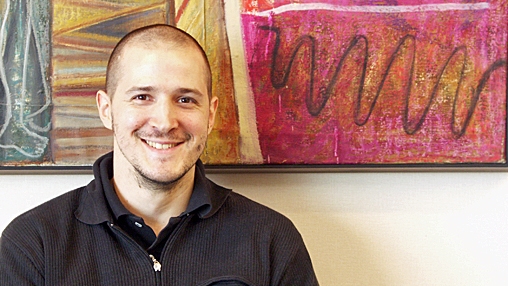Open and interactive
"My idea is that the user interacts with the data as he likes and see what is most interesting for him about three indicators: carbon dioxide emissions per capita, energy consumption and sources of energy production," says Quijano .
In addition, the application is open source, therefore allowing others to copy and modify.
In the end, the app provides alternatives for reducing the impact on climate change through changes at home, in transport and at a country level. Again, the user can manipulate the indicators and see different degrees of impact.
Quijano, 33, holds a degree in Computer Science from the University of Buenos Aires and works as a freelance app and games developer.
He also receives a grant from the National Ministry of Science and Technology's Trust Fund for the Promotion of Software Industry (Fonsoft).
He first travelled to the United States in 2009 to attend the Games Developers Conference in San Francisco, thanks to a scholarship.
Quijano beat 13 other finalists from around the world, among them two other Latin Americans:
Bolivia: Alvaro Molina, Telecommunications and Systems Engineer at Bolivia’s Universidad Catolica
Alvaro’s app, FuelECOnomics compares 45,000 cars by their fuel consumption and carbon dioxide emissions, allowing users to map out routes, estimating fuel costs and the journey’s carbon footprint.
“Users are able to see the way their car, and its fuel consumption, affects their country’s total carbon dioxide emissions, as well as their impact on climate change. Having a fuel efficient car is good for the wallet, but also for the environment,” Molina maintains.
Colombia: Ernesto Giron, Consultant, International Tropical Agriculture Center
WbPanorama, the app created by Ernesto, allows users to travel in time on board Climate Change data, enabling comparisions between the current climate in any given city with the future climate in another, according to their carbon emission.
“Having easily available online information can help adaptation or at least knowing what is in store for the future, or knowing what happened in the past,” Giron explains.

